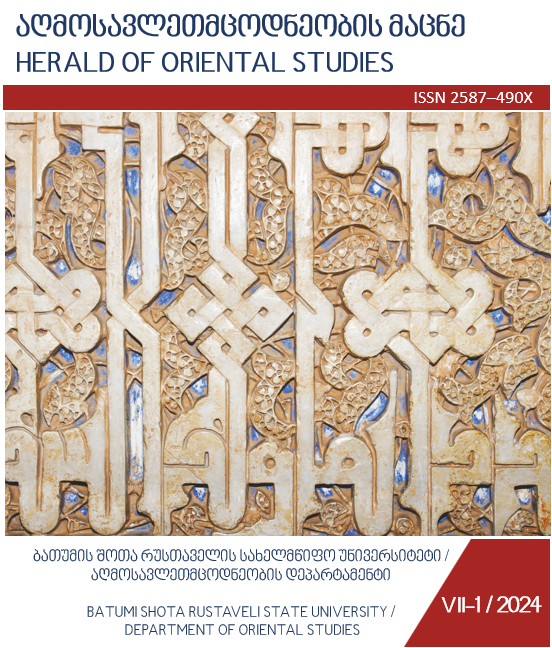Indian Conceptions of Human Personality (Alan Watts; Karel Werner)
Indian Conceptions of Human Personality (Alan Watts; Karel Werner)
Author(s): Vardo BeridzeSubject(s): Philosophy, Indian Philosophy
Published by: ბათუმის შოთა რუსთაველის სახელმწიფო უნივერსიტეტი, ჰუმანიტარული მეცნიერებატა ფაკულტეტის აღმოსავლეთმცოდნეობის დეპარტამენტის „ელექტრონული ჟურნალი“.
Keywords: civilization of India; person; mask; Brahman; Atman; Alan Watts; Karel Werner;
Summary/Abstract: The interest directed to a person and human being is as old as the history of humankind. The scale of conceptual meaning of a person, its comprehension and study is global. The issues associated with the concept of a person and its structure are studied and discussed by various sciences. They are studied by philosophy, psychology, history, social and political sciences. Philosophical ideas concerning human beings formed and developed in ancient India and China. Philosophical contemplation of the human being was oriented on investigating the human being’s internal nature, the degree of one’s freedom, and perfecting the aim and meaning of life, focusing on the primary unity of the macro and micro cosmos, nature and the human. Attitude to these issues formed in India is characterised by a special perspective which essentially differs from the Western philosophical traditions. Allan Watts, a XX-century British writer and philosopher who is known as an interpreter of Eastern wisdom thinks that the habits and traditions common to Indian society are rather interesting. In the book „Eastern Wisdom and Modern Life“ he discusses the human personality as a social or dramatic mask accepted in everyday life and attempts to thus demonstrate the specificity of Indian attitude to the human personality. As an orientalist and researcher of the philosophy of religion, Karel Werner observes and concludes, that the nature of a human being is still obscure. He thinks that a reasonable definition of the human personality simply states that it has a complex structure and complex dynamic functions. In sum, the research carried out by both of these scientists concluded that the force supporting everything that exists at the phenomenal level and a human person among them is „Brahman“. According to Brahman a human being himself/herself determines and chooses the way and means for his/her perfection and survival. A human being cannot change the world, he/she can change only oneself.
Journal: საერთაშორისო სამეცნიერო ჟურნალი „აღმოსავლეთმცოდნეობის მაცნე“
- Issue Year: 7/2024
- Issue No: 1
- Page Range: 486-510
- Page Count: 25
- Language: English

